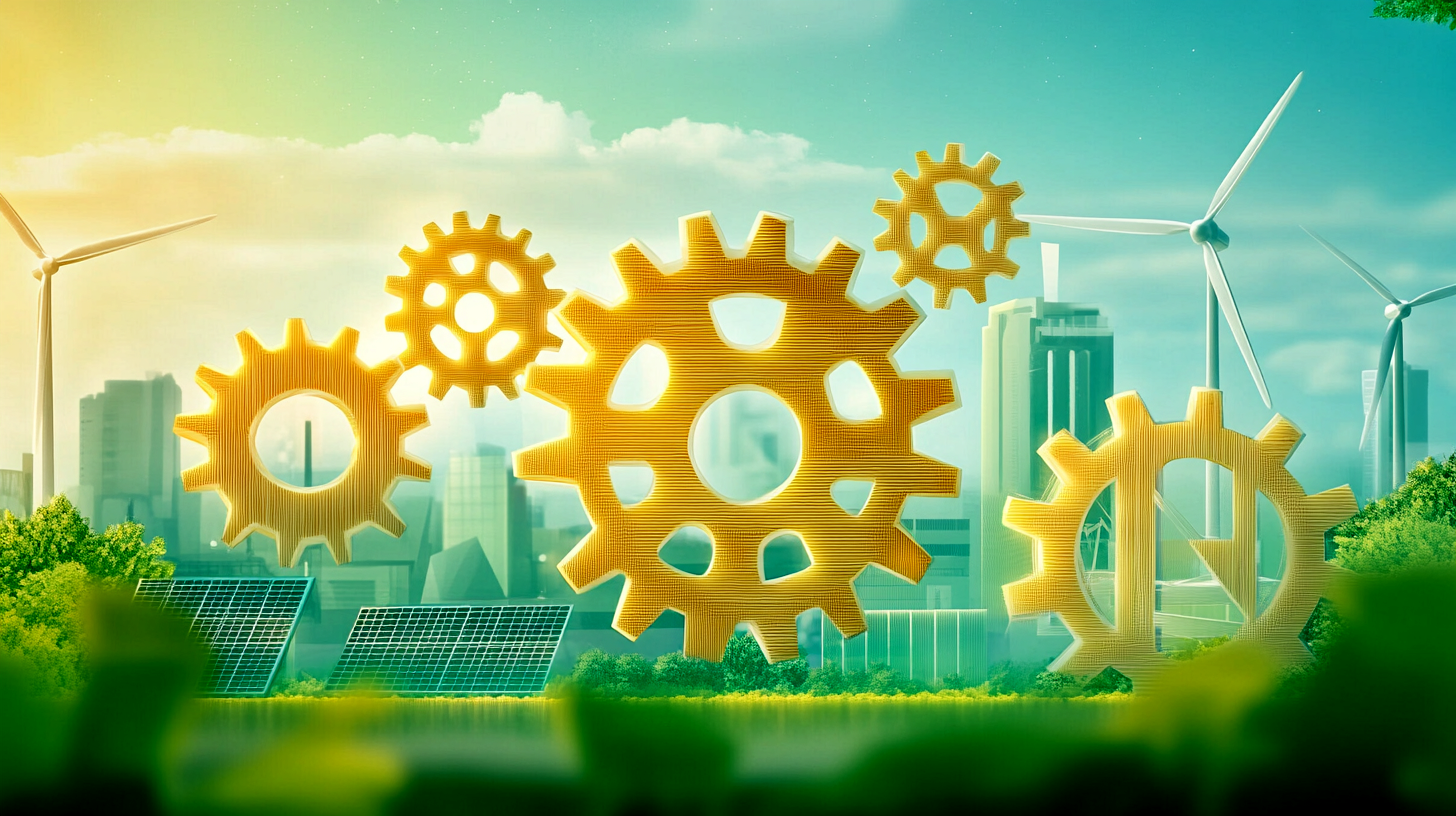Published on: January 4, 2025 / update from: January 4, 2025 - Author: Konrad Wolfenstein

Central points of a sustainable market economy: resilience and social responsibility as central values – Image: Xpert.Digital
Resilient market economy: The key to sustainable growth in times of crisis?
The sustainable market economy is becoming more and more important in an increasingly globalized world. Unforeseeable events such as the blockage of the Suez Canal by the container ship Ever Given, the corona pandemic or geopolitical conflicts such as the war between Russia and Ukraine clearly show the vulnerabilities of global supply chains and the dependence on international trade relationships. These developments highlight the need for a resilient and socially responsible market economy that strengthens regional structures, promotes innovative solutions and at the same time ensures long-term sustainability.
Resilience as a key factor in the modern economy
Resilience refers to the ability of a system to remain functional despite external disruptions. In a market economy, this means creating mechanisms that enable companies and economies not only to survive crises, but to emerge stronger from them. The following approaches are central to creating a resilient economy:
1. Buffer stocks and strategic supplies
Stockpiles of raw materials, food and essential materials play a crucial role in mitigating disruptions in supply chains. Companies and states must create strategic reserves to avoid bottlenecks and ensure basic supplies.
Suitable for:
2. Energy storage and independence
Given the increasing dependence on fossil fuels and international supply chains, the expansion of renewable energies and the development of powerful energy storage systems are of central importance. Regional energy autonomy can not only increase security of supply, but also reduce environmental pollution.
3. Localization of production capacities
A crucial step in strengthening resilience is moving production facilities closer to end consumers. This minimizes transportation costs, reduces carbon emissions and makes economies less vulnerable to international disruptions.
4. Diversify supply chains
Companies should make sure to spread their sources of supply across multiple providers and locations. This reduces the risk of individual suppliers or regions causing critical shortages.
Technological innovations as drivers of resilience
Technology plays a central role in creating a resilient economy. Smart city and smart factory concepts in particular help to increase flexibility and efficiency:
1. Artificial intelligence (AI) and automation
AI-based systems enable the optimization of production processes, the prediction of bottlenecks and the development of adaptive strategies. Automation also reduces dependence on human labor in times of crisis and increases productivity.
2. Internet of Things (IoT)
IoT technologies improve the connectivity of machines, devices and systems, providing real-time data. This data can be used to optimize supply chains and identify bottlenecks at an early stage.
3. 3D printing and decentralized production
Additive manufacturing enables the local production of products that would otherwise have to be imported from abroad. This reduces delivery times and makes companies more independent of international suppliers.
4. Blockchain technology
Blockchain offers transparency and security in supply chains as transactions and deliveries are documented in a forgery-proof manner. This increases trust in supply chains and helps minimize fraud or disruption.
Social responsibility in the market economy
A sustainable and resilient market economy must not only ensure economic stability, but also assume social responsibility. This means companies and governments taking actions that strengthen society as a whole:
1. Fair working conditions
Resilience is closely linked to workforce satisfaction and security. Companies should pay fair wages, offer flexible working models and ensure safe working environments.
Suitable for:
2. Sustainable production methods
Environmentally friendly technologies and the reduction of waste help to preserve the earth's resources and minimize the ecological footprint.
Suitable for:
3. Corporate Social Responsibility (CSR)
Companies should support social projects, invest in education and strengthen local communities. This not only promotes the company's image, but also social cohesion.
4. Education and qualifications
Given the rapid pace of technological change, ongoing workforce training is essential. Retraining and upskilling programs help meet the need for new skills and avoid unemployment.
Additional approaches to strengthen the sustainable market economy
In addition to the strategies already mentioned, there are other important approaches to promote a resilient and socially responsible market economy:
1. Regional networks and cluster formation
Collaboration between companies, research institutions and local governments in regional clusters can promote innovation and strengthen competitiveness.
2. Circular economy
A closed economic cycle in which waste is used as resources reduces dependence on raw material imports and protects the environment.
Suitable for:
3. Green financing
Investments in sustainable projects and companies can be promoted through green bonds and funds. Financial institutions play an important role in steering capital towards sustainable initiatives.
4. Strengthening the local economy
The consumption of local products and services reduces transport routes and promotes regional economic cycles. Campaigns such as “Buy Local” or “Made in your country” can increase the demand for domestic products.
5. Global cooperation while focusing on regional strengths
While regional strengths are being expanded, international cooperation on issues such as climate protection, trade and security remains essential. Multilateral agreements and organizations play an important role in this.
The role of regional structures in the sustainable transformation of the market economy
A sustainable and resilient market economy requires a balanced interaction of technological innovations, social responsibility and strategic planning. Strengthening regional structures, diversifying supply chains and expanding renewable energies are just as important as promoting fair working conditions and compliance with environmental standards. Only through a holistic approach can an economy be created that is not only crisis-proof, but also ensures a sustainable future for everyone.
Suitable for:

